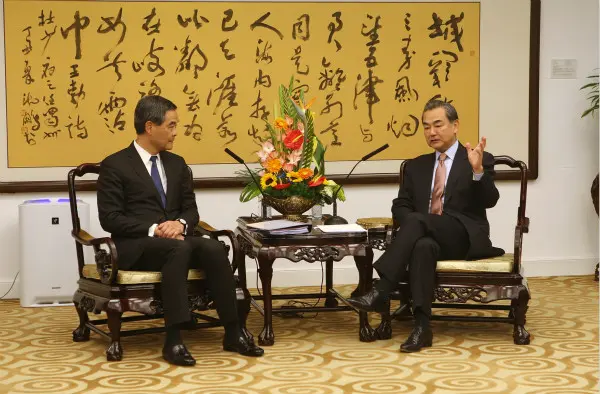By APD Writer Muhammad Sohail
ISLAMABAD, May 11 (APD)— Since May 5, border between Pakistan and Afghanistan is closed for both individuals and cargos, tension is at higher level after border forces of turmoil state Afghanistan annoyed their atomic power neighbor Pakistan by starting unprovoked firing at its security personnel and civilians that resulted killing of 12 people.
However, local analysts in Pakistan said that tension between Pakistan and Afghanistan is not in the bilateral and regional interest and could harm the common objective of peace and prosperity in the region.
Pakistan’s former diplomat, Fauzia Nasreen, said “The best way to address issues, if any, is to hold dialogue, because if the two countries fight with each other, it will detract them from the common objective of fighting terrorism and extremism and bringing in peace in the region.”
Commenting on the prevailing tensions between the two neighbors, Nasreen told APD Thursday that the closure of Pak-Afghan border due to such conflicts would affect the transit trade, and would add to the sufferings of Afghan people, who depend on Pakistani ports for trade with the world.
Pakistan has increased vigilance and closed all crossings at the Pak-Afghan border after Afghan forces opened fire at Pakistani security personnel guarding a census team in Chaman district of the country’s southwest province of Balochistan resulting killing of 12 people on May 5, including five children, three women and two security personnel.
Afghan forces started firing despite the fact that Afghan authorities had been informed in advance about the census exercise in Pakistani border areas and coordination was carried out through diplomatic and military channels, Pakistan army said.
Pakistan’s director general of military operations, Maj Gen Sahir Shamshad Mirza, established hotline contact with his Afghan counterpart and condemned unprovoked firing on Pakistani villagers and security forces.
Urging Afghan counterpart to limit their forces to their own side of the border and defuse the situation, Mirza said that the Pakistani forces and civilians were well within Pakistani territory when assaulted.
Pakistani forces claimed to have killed at least 50 Afghan soldiers and destroyed five check posts inside Afghan area in retaliation, however Afghan Ambassador to Pakistan Omar Zakhilwal rejected the claims and said “only two Afghan soldiers were slain and seven others injured”.
Afghan forces said they started firing After Pakistani soldiers and some civilians entered Afghan side, while Pakistani authorities overruled the claims, saying “they were well in their own side of a divided village”.
Earlier on Tuesday, a joint team of Pakistani and Afghan officials conducted a joint geographical survey in the controversial villages and submitted a report to Kabul and Islamabad, as both sides seek to remove discrepancies in Afghan maps.
Disaster management authority of Pakistan said over 2,000 Pakistani families were affected and at least 15,000 frightened people had to migrate from their villages to temporary shelters.
Following the attack, Pakistan’s Foreign Office also summoned the Afghan chargé d'affaires in Islamabad and lodged protest against the cross-border attack.
Adviser to Pakistani Prime Minister on Foreign Affairs, Sartaj Aziz, on Tuesday told Zakhilwal that border crossings will stay closed until Afghanistan government addresses Pakistan’s reservations.
Pakistan’s retired Air vice Marshal, Shahzad Chaudhry said “the incident at the border is unfortunate and exceptional and I hope that such episodes would not repeat in future.”
“Such incidents are too dangerous for peace and economic development in the region. Pakistan is a main stakeholder of peace negotiations in Afghanistan, and if Pakistan is hurt, such a situation would further push Afghanistan into unrest and uncertainty,” said Chaudhry.
Pakistan’s former ambassador to Afghanistan, Rustam Sham Mohmand, said that Afghanistan’s attitude is deplorable and called for the formation of a commission in order to find those responsible for the incident which resulted in the loss of lives on both sides.
Following the border attack, voices in Pakistan have increased to send back all Afghans living in Pakistan. Pakistan, which shares 2,430 kilometers long border with Afghanistan, has been hosting millions of Afghan refugees since Russia-Afghan war started in 1979.
According to the United Nations High Commissioner for Refugees (UNHCR), some 1.34 million registered and half a million undocumented Afghan refugees are still in Pakistan.
Director of Islamabad Council for International Affairs, Professor Saeed Chaudhry, termed demands to send Afghans back as a childish and said “sending Afghan refugees back at this critical time will further affect already dented trust between Pakistan and Afghanistan.”
“No doubt, it is a great mistake by Afghan forces, but for this whole Afghanistan should not be punished. Afghan government should shun its ineffectiveness, laziness and reluctance and should bring responsible to justice so that relations can be revived for the best interest of people and region,” said Professor Saeed, while talking to APD.
(ASIA PACIFIC DAILY)
 简体中文
简体中文

